|
Dr AYRIS has been Director of UCL Library Services since 1997. He is also the UCL Copyright Officer.
Dr Ayris is the President of LIBER (Ligue des Bibliothèques Européennes de Recherche). He is a member of the LIBER and SPARC Europe Boards and co-chairs the LIBER Conference Programme Committee for their Annual General Conferences. He also co-chairs the OAI Organizing Committee for the Cern Workshops on Scholarly Communication. He is a member of the JISC's Electronic Information Resources Working Group, He was recently a member of the NSF-funded Blue Ribbon Task Force on economically-sustainable digital preservation.
He has a Ph.D. in Ecclesiastical History and publishes on English Reformation Studies.
|
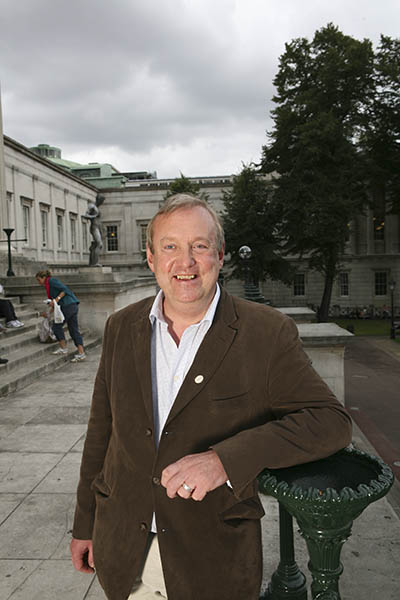 |
|
|
Sean BECHHOFER is a Lecturer in the Information Management Group within the School of Computer Science at the University of Manchester. His interests fall under the broad umbrella of developing middleware and infrastructure to support applications, in particular through the use of semantic technologies such as OWL, SKOS and RDF. He has been a participant in W3C Working Groups developing Semantic Web languages, and was responsible for the development of editors and APIs to support the development and use of OWL ontologies and SKOS vocabularies. He is currently involved with a number of projects working towards the development of infrastructure to support "Research Objects" -- artefacts intend to support the publication of reproducible and reusable results.
http://humblyreport.wordpress.com
|
 |
|
|
Alain BOREL. After a PhD in physical inorganic chemistry, Alain Borel turned to librarianship. Today he is in charge of collection development and academic support for chemistry and materials science at the EPFL Library (Ecole Polytechnique Fédérale de Lausanne, Switzerland) (http://library.epfl.ch). Under this broad job description, he likes to take part in various IT and/or scientific projects. He has been involved in the EPFL institutional repository, Infoscience (http://infoscience.epfl.ch), since 2006.
|
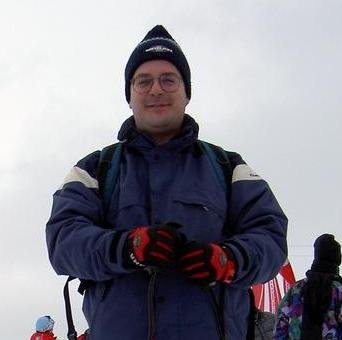 |
|
|
|
Niamh Mary BRENNAN is Programme Manager for Research Information Systems & Services in Trinity College Library Dublin where she works on the development of Trinity’s Research Support System (CRIS), its fully-integrated institutional repository, TARA (Trinity’s Access to Research Archive), on the dissemination of research outputs through ePublishing and on the development of research informatics services in TCD.
Niamh is a member of a number of groups working on open access to research outputs and enabling their improved retrieval. These include RIAN (federated repositories for open access scholarly outputs in Ireland), NDLR (the Irish National Digital Learning Objects Repository), OpenAIRE (European Commission Framework 7), DART-Europe (Digital Access to Research Theses Europe) and the Irish African Partnership for Research Capacity Building ( IAP) She is a member of the McArthur Foundation-funded Global MDP Task Force which shares course materials and research outputs in the area of international development practice amongst 22 partner institutions across 5 continents. In the area of standards for data exchange, Niamh is currently engaged with the UK JISC-funded project CERIFy. She coordinates iResearch (the National Research Data Project), providing bibliometric and other business intelligence data to the Irish HE sector.
|
 |
|
|
Dr. Christoph BRUCH is head of Open Access Unit at Max Planck Digital Library. He studied political sciences at Johann Wolfgang Goethe University in Frankfurt am Main and Free University Berlin and wrote his doctoral thesis about the US Federal Freedom of Information Act. Before joining Max Planck Society he held professional positions at the Free University Berlin and the German Institute for Urban Studies. He also worked as freelance consultant advocating access laws and laws regulating direct democracy in Germany. On the international level he was involved in the "UN World Summit on the Information Society" as a representative of the German Civil Liberties Union and temporarily as a member of the German Government delegation. For the ongoing post summit process UNESCO appointed him 'lead moderator' for the topic “Preservation of Scientific Data". He is member of the board or board of trustees of several NGOs, e.g Coalition for Action "Copyright for Education and Research" (http://www.urheberrechtsbuendnis.de/); Foundation "House of Democracy and Human Rights" (http://www.hausderdemokratie.de/), More Democracy (http://www.mehr-demokratie.de/).
|
 |
|
|
Jonathan DEERING is the lead software developer at the Center for Digital Theology at Saint Louis University. He has been with the CDT since fall 2008, when he worked on the Electronic Norman Anonymous, a digital edition of an 11th century text, which married the edited text with high quality images of the manuscript. Currently,he is working on T-PEN, a transcription tool which combines image processing techniques and an intuitive user interface to make transcribing manuscripts from digital images a much more pleasant and productive process. He is also a member of the Stanford Digital Medieval Manuscripts Technical group, which is working to build a set of standards for the inter-operation of manuscript image repositories.
|
 |
|
|
David F. FLANDERS is Programme Manager for the JISC in the UK. He currently oversees programmes of projects in linkeddata (#jiscEXPO) and geospatial (#jiscGEO). Previously he has overseen work in more than 100+ projects including: agile software development (#jiscRI), repositories (#jiscDEPO), libraries (#jiscLMS), linkeddata (#jiscEXPO), geospatial (#jiscGEO), identifier sets (#jiscPID) and other technical infrastructure areas such as ePUB and HTML5 (#jiscPUB). Further information on JISC's Digital Infrastructure work can be found on their team blog at: http://infteam.jiscinvolve.org/ or by asking a question via twitter to @dfflanders
|
 |
|
|
|
|
François GREY is the coordinator of the Citizen Cyberscience Centre in Geneva, a partnership between CERN, the UN Institute for Training and Research and the University of Geneva. He is also a Fellow of the Shuttleworth Foundation, which supports dynamic leaders at the forefront of social change. He is currently based in Beijing where he is Professor of Distributed Scientific Computing at Tsinghua University.
|
 |
|
|
Ivo GRIGOROV is an oceanographer, currently managing research programs on the impacts of climate change on marine ecosystems and resources, under the European Commission Framework Programme 7 (Theme Environment).
He has been an advocate for Open Access since 2008, and specifically focusing on open access to data and peer-review publications across all climate-related disciplines. Together with colleagues and other Open Access advocates, he organizes the annual training ‘Open Access for Climate Scientists’ and formulated a cost-benefit analysis leading to an OA mandate for the Euro-Oceans Consortium of 26 European marine research institutes (ROARMAP 315).
|
 |
|
|
Monica HAMMES. I recently retired as Deputy Director of the University of Pretoria Library Services. I had the good fortune to introduce my university to open access, including the establishment of an Open Scholarship unit in the library and a successful OA mandate. My other professional interests are library value and mainstreaming innovation.
|
 |
|
|
Dr. Victor HENNING is the co-founder and CEO of Mendeley, a London and New York-based technology startup. Since its launch in 2009, Mendeley has grown into the world's largest research collaboration platform with one million users, and the world's largest crowdsourced research database with more than 90 million uploaded documents. For his work on Mendeley, Victor was elected a Fellow of the Royal Society of Arts. He holds a Ph.D. from the Bauhaus-University of Weimar, where he researched the role of emotion in consumer decision making. Prior to this, he worked at strategy consulting firm Oliver Wyman, film production company Helkon, and record labels Sony Music/Columbia and Revelation Records.
|
 |
|
|
Anja JENTZSCH is a PhD student at the Web-based Systems Group at Freie Universität Berlin. She is a Linked Data enthusiast, being involved in several Linked Data projects since 2007. Currently she is working on DBpedia (Wikipedia as Linked Data), Silk (interlinking Linked Data sets) and LODD (Linking Open Drug Data).
|
 |
|
|
Heather JOSEPH serves as the Executive Director of the Scholarly Publishing and Academic Resources Coalition (SPARC), an international coalition of libraries working to enable a more open system of scholarly communication. As SPARC’s Director, she has focused on supporting the development of new publishing strategies and business models, and advocating for national and international policies that encourage the adoption of Open Access as central principle of research and scholarship.
A firm believer in the power of partnerships, Ms. Joseph is also the convener of two related coalitions working to promote Open Access. The Alliance for Taxpayer Access – a collection of universities, patients advocacy groups, consumer groups, and other organizations - works to ensure that results of publicly funded research are openly accessible to the public; while the Right to Research Coalition- comprised of groups representing more than 7 million undergraduate, graduate and professional students – helps to give an organized voice to the student community committed to open sharing of scholarship.
Prior to joining SPARC, she spent 15 years as a publishing executive in both commercial and not-for-profit publishing organizations. She is an active participant on the Board of Directors of numerous not-for-profit organizations, and is a frequent speaker and writer on scholarly communications in general, and on Open Access in particular.
|
 |
|
|
Barbara KALUMENOS holds a degree of Biology from the Ludwig-Maximilians-University in Munich and has been working since 1985 in leading Sales & Marketing positions for various international companies focused on scientific information. Joining in 1994 Beilstein Information Systems Mrs Kalumenos was instrumental in the successful migration from print media (Beilstein Handbook of Organic Chemistry) into the digital environment. From 2002 onwards Mrs Kalumenos hold various positions in the Elsevier corporation where since 2006 she was responsible as Director External Relations for the intensification of dialogue with the key stakeholders in science, politics and the library community. In 2008 she joined STM, the International Association of Scientific, Technical and Medical Publishers where she is now Director Public Affairs.
|
 |
|
|
Samuele KAPLUN holds an MsC degree in Computer Science from the Università degli Studi di Milano-Bicocca, Italy. He works at CERN in the Department of Information Technology in the User and Document Services group.
Samuele has been one of the core Invenio developers since 2007, designing and implementing numerous Invenio modules. He is part of the team running several high-energy physics digital repository services such as the CERN Document Server institutional repository, INSPIRE information system, or International Linear Collider document server. Samuele is involved in the OpenAIRE European project where he is the technical lead behind the OpenAIRE Orphan Repository. Samuele's professional interests include information retrieval and ranking, web programming and rapid development technologies, system programming and administration.
|
 |
|
|
Jan KRAUSE works as system librarian at the University of Geneva (UNIGE) and at the Centre Hospitalier Universitaire Vaudois (CHUV). Before, he worked for the Organisation européenne pour la recherche nucléaire (CERN) and the Conservatoire et Jardin Botaniques de la Ville de Genève (CJB). He is specialised in bibliographic similarity analysis (MarcXimiL co-developper), inter-library loan workflow management (OpenLinker co-developper), bibliometry and especially the Python programming language. Mr. Krause has a background in botany: preservative in-vitro multiplication and population genetics.
|
 |
|
|
Jean-Yves LE MEUR is a software engineer from the Institut d'Informatique d'Entreprise (CNAM) and holds a Master in Computing from Oxford University. He is currently in charge of CERN digital library, managing the CERN Document Server service that looks after the ingestion and dissemination of CERN scientific and administrative electronic documents. He is also coordinating the core team of the Invenio open source project, and he is active in multiple European projects relative to infomation and communication technologies.
|
 |
|
|
|
|
Salvatore MELE holds a PhD in Physics and is head of Open Access projects at CERN. In this capacity he acts as the interim project manager for SCOAP3 and coordinates the SOAP and ODE projects, financed by the European Commission to study opportunities in Open Access publishing and Open Data, respectively. He is also active in the field of disciplinary repositories as one of the architects of INSPIRE, a next-generation information system for High-Energy Physics. He has recently expanded his interests to opportunities, policies and governance for data preservation, re-use and sharing with the PARSE.Insight, APARSEN and DPHEP groups. Previous to this appointment, he led scientific teams which measured fundamental physics constants, hunted for the Higgs boson and searched for extra dimensions at the CERN LEP accelerator.
|
 |
|
|
Barend MONS (born The Hague, The Netherlands in 1957, PhD in1986 at Leiden University, in The Netherlands) is a molecular biologist who turned to bioinformatics in 2000 after a decade of research on the genetic differentiation of malariaparasites, and five years of science management a the Research Directorate of the European Commissionand the Netherlands Organisation of Scientific Research. He is the initiator of WikiProfessional and an inventor of the Knowlet technology. In 2008 he was one of the driving forces behind the Concept Web Alliance, in close collaboration with (a.o.), Jan Velterop, Mark Musen, Amos Bairoch, In 2000 he founded Collexis and in 2005, he co-founded Knewco, Inc.
Since 2002 he has been Associate Professor in Biosemantics at the Department of Medical Informatics, Erasmus Medical Centre, University of Rotterdam and (since 2005) at the Department of Human Genetics at the Leiden University Medical Centre, both in The Netherlands. Mons published over 70 peer reviewed articles, holds three patents in semantic technology and is a regular keynote speaker at international conferences.
As of 2010 He is a Scientific Director of the Netherlands Bioinformatics Centre (NBIC), whilst retaining his academic affiliations with Leiden University Medical Centre and Erasmus Medical Centre.
|
 |
|
|
Cameron NEYLON is a biophysicist who has always worked in interdisciplinary areas and is an advocate of open research practice and improved data management. He currently works as Senior Scientist in Biomolecular Sciences at the ISIS Neutron Scattering facility at the Science and Technology Facilities Council (STFC). Along with his work in structural biology and biophysics his research and writing focuses on the interface of web technology with science and the successful (and unsuccessful) application of generic and specially designed tools in the academic research environment. He is a co-author of the Panton Principles for Open Data in Science, founding Editor in Chief of Open Research Computation, and writes regularly on the social, technical, and policy issues of open research at his blog, Science in the Open.
|
 |
|
|
William NIXON is the Service Development Manager of Enlighten, the University of Glasgow's institutional repository service (http://eprints.gla.ac.uk). He was the Project Manager (Service Development) for the JISC funded DAEDALUS Project that set up repositories at Glasgow using both ePrints and DSpace. William is now involved with the ongoing development of services for Enlighten and support for Open Access at Glasgow. Through the JISC funded Enrich and Enquire projects he has worked to embed the repository into University systems. This work includes links to the research system for funder data and the re-use of publications data in the University's web pages. He was part of the University's team which provided publications data for the UK's Research Excellence Framework (REF) Bibliometrics Pilot. He has been involved in a local REF exercise at Glasgow which used the repository to capture impact and outputs data.
|
 |
|
|
Mark PATTERSON was a researcher in human and yeast genetics for 12 years before moving into scientific publishing in 1994 as the Editor of Trends in Genetics. After a few years at Nature, where he was involved in the launch of the Nature Reviews Journals, he moved to PLoS in 2003. As an editor, Mark helped to launch several of the PLoS Journals and was appointed as Director of Publishing in 2005. He also helped to found and serves on the Board of the Open Access Scholarly Publishers Association.
|
 |
|
|
David SOLOMON is a professor of medicine at Michigan State University’s College of Human Medicine. He is the founding editor of Medical Education Online, an OA journal that has been published since April 1996. He is an educational psychologist by training but has a strong interest in open access publishing and has published extensively on the topic including a book titled Developing Open Access Journals: A practical guide.
|
 |
|
|
Friederich SUMMANN is head of the IT Department of Bielefeld University Library, Germany. Currently he is involved in BASE (Bielefeld Academic Search Engine) and the European DRIVER project.
He is engaged with analysing and harvesting metadata from a multitude of different document servers world-wide using the OAI protocol and transporting this collected data to different search environments. This efforts led to many contacts within the OAI community related to the discussion of technical problems His practical work includes project coordination and software developments using Perl and C, mostly in Linux and Unix environments.
|
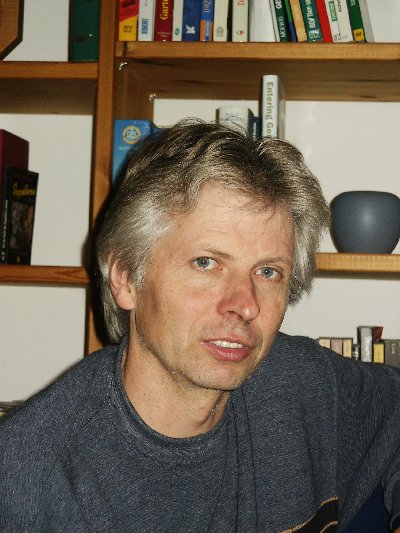 |
|
|
Alma SWAN (Director, Key Perspectives Ltd) is a consultant working in the field of scholarly communication. She is a director of Key Perspectives Ltd and holds honorary academic positions in the University of Southampton School of Electronics & Computer Science and the University of Warwick Business School. Alma is Convenor for Enabling Open Scholarship, the organisation of universities promoting the principles of open scholarship in the academic community. Her work covers market research and business modelling, project management and evaluation, research communication practices and behaviours, and the study and promotion of new forms of scholarly communication in the age of the Web. She writes and makes frequent presentations on scholarly communication issues.
Alma has BSc and PhD degrees from the University of Southampton and an MBA from Warwick Business School. She is a Fellow of the Society of Biology and a Chartered Biologist, is an elected member of the Governing Board of Euroscience (the European Association for the Promotion of Science & Technology) and is the former editor of its online magazine, The Euroscientist.
|
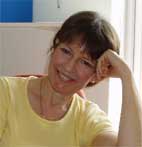 |
|
|
Herbert VAN DE SOMPEL graduated in Mathematics and Computer Science at Ghent University (Belgium), and in 2000 obtained a Ph.D. in Communication Science there. For many years, he headed Library Automation at Ghent University. After leaving Ghent in 2000, he was Visiting Professor in Computer Science at Cornell University, and Director of e-Strategy and Programmes at the British Library. Currently, he is the team leader of the Prototyping Team at the Research Library of the Los Alamos National Laboratory. The Team does research regarding various aspects of scholarly communication in the digital age, including information infrastructure, interoperability, digital preservation and indicators for the assessment of the quality of units of scholarly communication. Herbert has played a major role in creating the Open Archives Initiative Protocol for Metadata Harvesting (OAI-PMH), the Open Archives Initiative Object Reuse & Exchange specifications (OAI-ORE), the OpenURL Framework for Context-Sensitive Services, the SFX linking server, the bX scholarly recommender service, and info URI. Currently, he works with his team on the Open Annotation and Memento (time travel for the Web) projects.
|
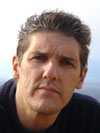 |
|
Astrid VAN WESENBEECK. After finishing her masters in Dutch Literature at Utrecht University in 2000, Astrid van Wesenbeeck worked for University Library Utrecht as managing editor of the open access journal IJIC. From 2004 she was publishing consultant and project manager at Igitur, Utrecht Publishing & Archiving Services. She was highly involved in setting up new Open Access Journals, managing Open Access projects and implementing Open Access Policies at Utrecht University.
Since summer 2010 she is the executive director of the Scholarly Publishing and Academic Resources Coalition (SPARC) Europe.
SPARC Europe is an alliance of European Universities which aim to open up the system of scholarly communications. |
 |
|
|
Paul WALK is Deputy Director of UKOLN (http://www.ukoln.ac.uk), based at the University of Bath in the UK, where he has worked since 2006. Prior to this he worked in the academic library at the University of North London and went on to lead the technical development of eLearning systems and related software at London Metropolitan University.
At UKOLN, Paul is primarily engaged in developing UKOLN in its role as a JISC-funded 'Innovation Support Centre'. He gives technical advice to the JISC with a particular focus on the standards and technologies related to resource discovery, leads the Developer Community Supporting Innovation (DevCSI) project (http://devcsi.ukoln.ac.uk/blog/about/) in the UK and, together with Adam Cooper of CETIS, leads the development of the JISC Observatory (http://observatory.jisc.ac.uk) |
 |
|
Inge WERNER (1973) holds a PhD in the Humanities. She works for Utrecht University Library (the Netherlands) as publishing consultant of Igitur publishing and as team coordinator of Team Marketing and Publishing. She is involved in setting up new open access journals and the transition of subscription-based, paper journals to open access. She advices editorial boards on publication strategies and the use of Open Journal Systems. Inge Werner is moderator for the Low-Countries, Great Britain and Ireland at the PKP Europe Network Platform and is also involved in a Dutch initiative for quality, visibility and accreditation of open access journals.
|
 |
|
Peter WITTENBURG
1973: Electrical Engineering (TU Berlin)
1974: Researcher (TU Berlin)
1976: Technical Director of MPI for Psycholinguistics
2010: Head The Language Archive
1988: Member of the MPG IT Advisory Board
2000: participating in and leading national, European and international initiatives
|
 |
|